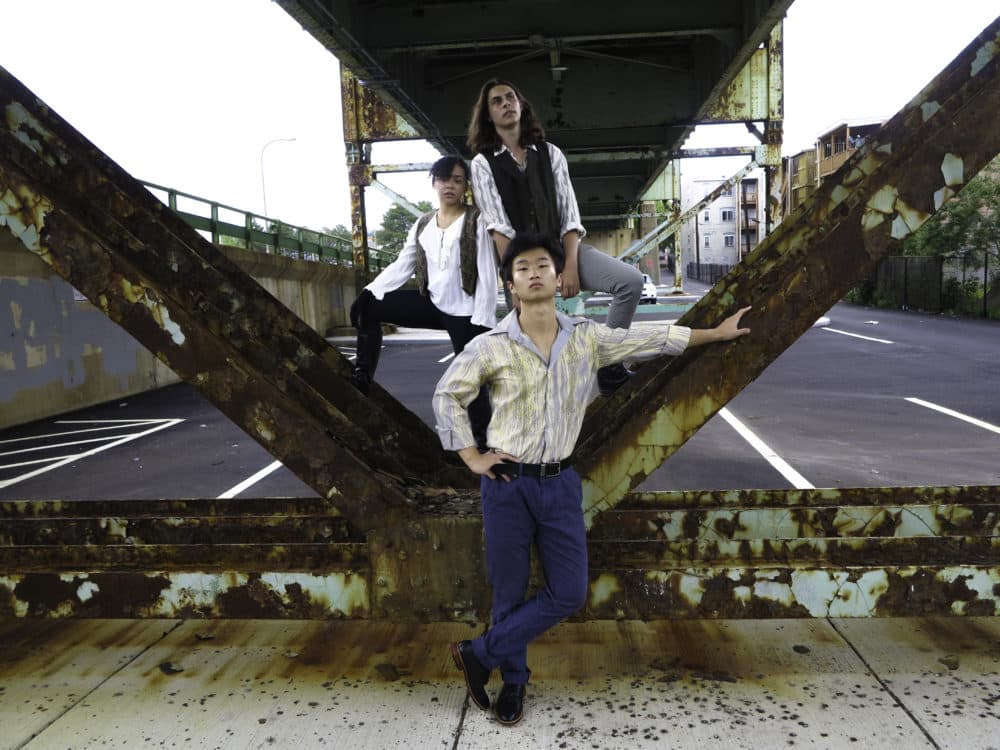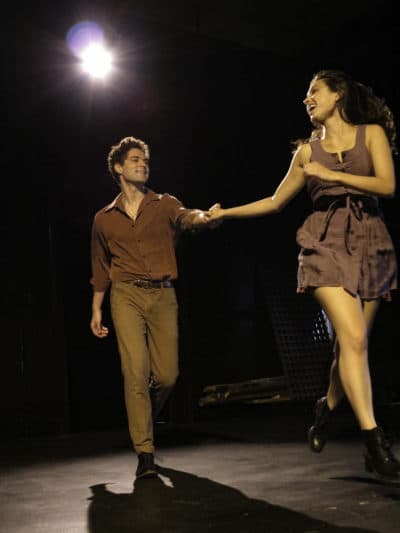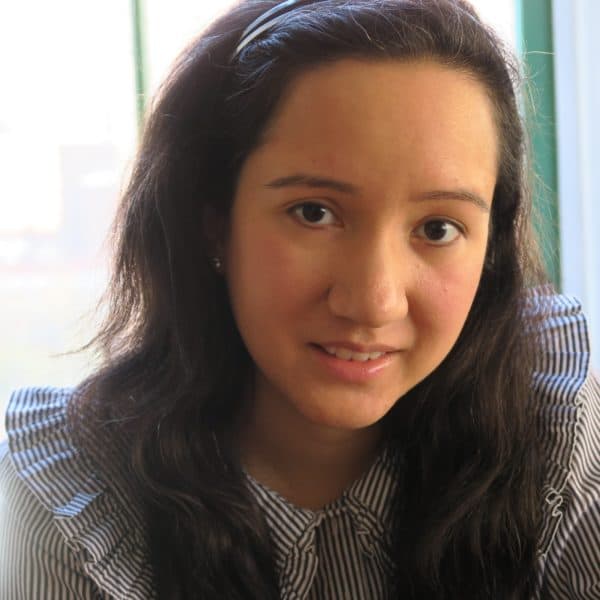Advertisement
A Roving Production Of ‘Romeo & Juliet’ Also Moves Between Languages In Chelsea

The classic tale of “Romeo & Juliet” will be reinterpreted in Apollinaire Theatre Company’s bilingual, immersive production. Staged outdoors in Chelsea Square, the show is an on-your-feet adaptation that will allow audiences to follow the action, as the actors move through the street and the park. With lines alternating between English and Spanish, members of the creative team said that they wanted to make the performance accessible to a diverse audience, so that it could be understood in multiple languages. The production will be performed on Saturdays, Aug. 14, 21, and 28.
“We are located in Chelsea Square in a beautiful old building, which really lends itself to staging some of the play,” said director Danielle Fauteux Jacques. “We’re using the second floor for the balcony scene. We have some ground floor storefronts with big, glass windows, where we’re staging some of the interior scenes.”

The production will be preceded by an almost two-hour long pre-show, which includes a concert happening onstage and a variety of acts happening in the park itself and in the fountain area. Elements include the singing of boleros and a clowning performance. Audience members will also be welcome to have dinner in the theater’s beer garden, featuring BearMoose Brewery, or have take-out from some of the restaurants nearby. Part of the intention in staging the show live in the streets was to create compelling, public art that would bring both local and out-of-town people together, said Jacques.
One reason Jacques picked “Romeo & Juliet” to be performed is because it is a well-known story; people know the plot and major characters, making it easier for them to interpret a play told in two different languages. "Chelsea is a super bilingual community,” she added. “In the past, we’ve done shows with one night in English and one night in Spanish, in the park…We wanted to invite everyone and have everybody in Chelsea feel like they could come, that they could understand the show. We really worked on the adaptation with an eye to keeping it very comprehensible in both languages.”
Carla Mirabal Rodríguez, one of the assistant directors, worked on adapting the translation from what was available in the public domain. Her intention was to preserve the poetry and beauty of Shakespeare’s language, while putting together the script. The characters are bilingual and shift from speaking the two languages throughout the play; they were not intended to have a specific, ethnic identity making them different from each other.
“I do think that [the language choices] felt purposeful to me in that it ensures the vision that we want to portray is that these families are more alike than they are different,” said Mirabal Rodríguez. “Isn’t that how rivalries usually go?”
More from WBUR
Emma Laird, who plays Juliet, said that one aspect of the creative process that she found rewarding was the feeling of connection. Having spent so much time living under the constraints of the coronavirus, arriving at the story through communion with other artists and working intimately with collaborators was a powerful experience. Laird said that she did not want to replicate anyone else’s Juliet but brought herself to the role, exploring the character’s vivacious nature and journey. She had never spoken Spanish before but worked with a dialect coach for the show, which gave her a textural, visual understanding of the language.
“We developed a storyline that insists that Juliet had a little bit of a bilingual upbringing, with a father who didn’t speak Spanish and a mother who did speak more Spanish,” said Laird. “It was about, why does Juliet turn to Spanish in these times during the story? We come to understand why she switches languages in times of stress and in need of comfort.”
An important part of the show is its dynamic, surging energy, said Jacques, and through the production’s original music, written by Demetrius Fuller, and her own direction, she endeavored to capture the momentum that the characters feel.
“I think that there’s a kind of headlong rush that’s part of the show,” said Jacques. “A lot of the decisions that Romeo and Juliet make, they make them under intense, familial and societal pressures. They don’t really have any time to think. They just keep feeling like they have to act now. There’s a real drive in the show. We’re hoping to capture that in the production.”
Apollinaire Theatre Company’s production of “Romeo & Juliet” will be performed in Chelsea Square Aug. 14, 21 and 28.
